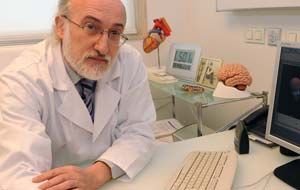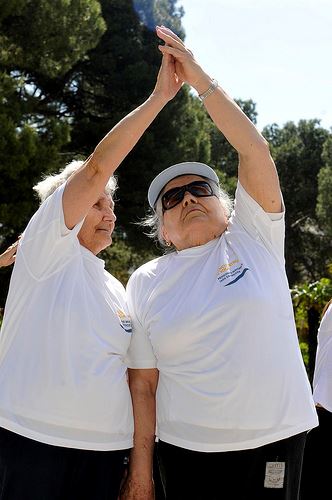Some spanish researchers have designed a vaccine against Alzheimer.
The treatment, which could be marketed in ten years, is effective in 50% of cases of the disease. It has been successfully tested in mice.
The fight against Alzheimer is progressing. Proof of this is the design of a vaccine against the neurodegenerative disease developed by a group of Spanish researchers from the Biomedical Research Center,in La Coruña (Galice, North-west of Spain), led by Dr. Ramón Cacabelos. A vaccine has been successful in animals and has already achieved the patent to manufacture in the U.S., where they will begin clinical trials should be favorable, would be marketed in eight or ten years.

Dr. Cacabelos
"Alzheimer's is an incurable, hereditary," said last Thursday Dr. Arturo Fernandez-Cruz, professor of medicine at the University Complutense of Madrid, in the presentation of research results. And is that data are worrisome. The Alzheimer in Spain affects between 500.000 and 1.3 million people. The number skyrockets to 36 million worldwide. A number that can reach 115 million in 2050. In fact, every four seconds a new case occurs. "It is one of the diseases that damages our dignity as human beings," said Dr. Cacabelos, director of research. In fact, it is the fourth largest health problem incidence. Alzheimer causes atrophy and premature death of neurons.

"Mas de 330 personas mayores han participado en el II Encuentro de Yoga", Aragón, North-east of Spain, by Gobierno de Aragón, at flickr.com
Furthermore, although aging is a risk factor, development of the disease depends on the genome of each individual. However, as Dr. Cacabelos recalled, "there are over 600 genes related to the development of disease."
The Spanish research team has developed the vaccine EB-101 as a preventive and therapeutic. In the mouse study phase has achieved important results. The immunized animals did not develop the disease and those who already manifest symptoms of Alzheimer before vaccination, was reduced evolution of the disease. "So far, all he did fail to previous vaccines we have avoided", said Dr. Cacabelos. And in rodent tests not suffered brain hemorrhages or neuroinflammatory reactions that ended earlier research trials.
"When given disease symptoms in old age, the number of dead neurons is so great that the therapeutic treatments are minimized.Therefore, the key is prevention”, warned Dr. Cacabelos.
And that's where his acts would have inoculated vaccine at age 35 in cases of serious risks (genetic or hereditary reasons) or 45 in normal records. Moreover, there would be a single dose, but that would be required in batch set months. In any case, the next step is the human clinical trial, to be held in the U.S. in the coming months.
However, if the vaccine reaches the market EB-101, would not cure the disease Alzheimer. The doctor Cacabelos has called prudence explaining that the treatment would only be valid in the 40% or 50% of the cases. The rest would need different strategies to be developed.
I hope that the researchers spend less time than ten years to market the vaccine.
Kind regards,
Luis.
Sponsored by Costaluz Lawyers.
Please click down here:
.jpg)